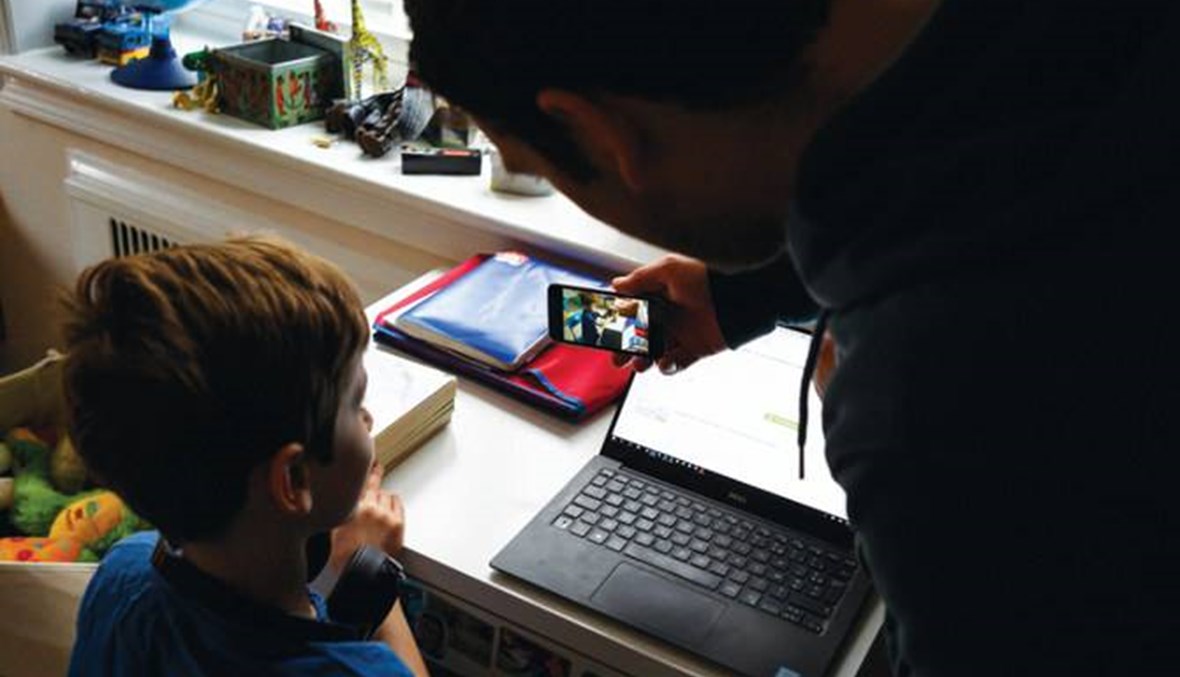Students and teachers hindered by e-learning
BEIRUT: It’s been over a month since schools were suspended indefinitely and remote learning was adopted instead in Lebanon, and the globe due to the coronavirus outbreak, and worldwide organizations have offered guidelines to help teachers conduct online classes.
UNESCO has uploaded a list of pragmatic websites and applications for teachers to create digital learning content that students can easily access, and the agency has also promoted self-directed learning content that can help students, including Duolingo, Khan Academy, and Code It.
The European Commission has also provided a selection of online resources and tools for educators and students, where the Commission encourages the use of EU-funded projects like the European Distance and e-Learning Network that aims to ameliorate the educational experience between distance learners and teachers.
However, in spite of such brilliant initiatives, Annahar interviewed a few concerned teachers in Lebanon to inquire about the disadvantages they and their students are facing by resorting to e-learning, and the complaints are alarming as the country is not equipped for distance learning.
“Technology can be implemented in class as a tool that empowers a physical class; however, it should not take over. The teacher-student connectivity cannot be maintained through e-learning,” Hiba Hassounah, an English teacher at Rawdah High School, shared with Annahar.
Hassounah also elaborated on how remote learning does not target all types of students and their disparate ways of learning since “many students still need to be verbal, interactive, tactile, and may even require a direct experience to learn.”
Likewise, Hamsa El Sheikh, a mathematics teacher in Saida, believes that e-learning has been an extremely laborious experience for her seventh-grade students.
“Most of my students come from humble backgrounds and some do not even have laptops at home; not to mention the recurrent power cuts that disable them from watching online classes,” she expressed with dismay.
Khaled Kandil, an Arabic teacher, mentioned how impractical digital learning is in Lebanon as it only hampers his students’ academic progress.
“We do not have 24/7 electricity or access to fast and cheap Internet, and that only heightens the socioeconomic divisions among students as some are privileged enough to access wireless mobile connection while others aren’t,” Kandil lamented.
While being confined at home is a necessary precaution to halt the spread of the virus, staring into a laptop screen is no substitute for an actual classroom.
“Most of the time the screen freezes during online classes and we have to keep interrupting our teacher to repeat the explanation. It’s even worse when they upload videos and it takes over an hour to download the content,” Leen Akil, a Brevet student, noted to Annahar.
As for Bassel Jammal, an eleventh-grade student from Tripoli, what aggravates the situation for him is having no private room to watch online classes in.
“We are 7 people living in a two-bedroom apartment, so privacy is never an option and e-learning only makes studying more burdensome,” he conveyed in distress.
Quarantine measures have taken a toll on students’ education, and while many schools are defying obstacles to try and ensure their students can learn with ease, most impediments to online education remain anchored and unresolvable in Lebanon.


 اشترِك في نشرتنا الإخبارية
اشترِك في نشرتنا الإخبارية











